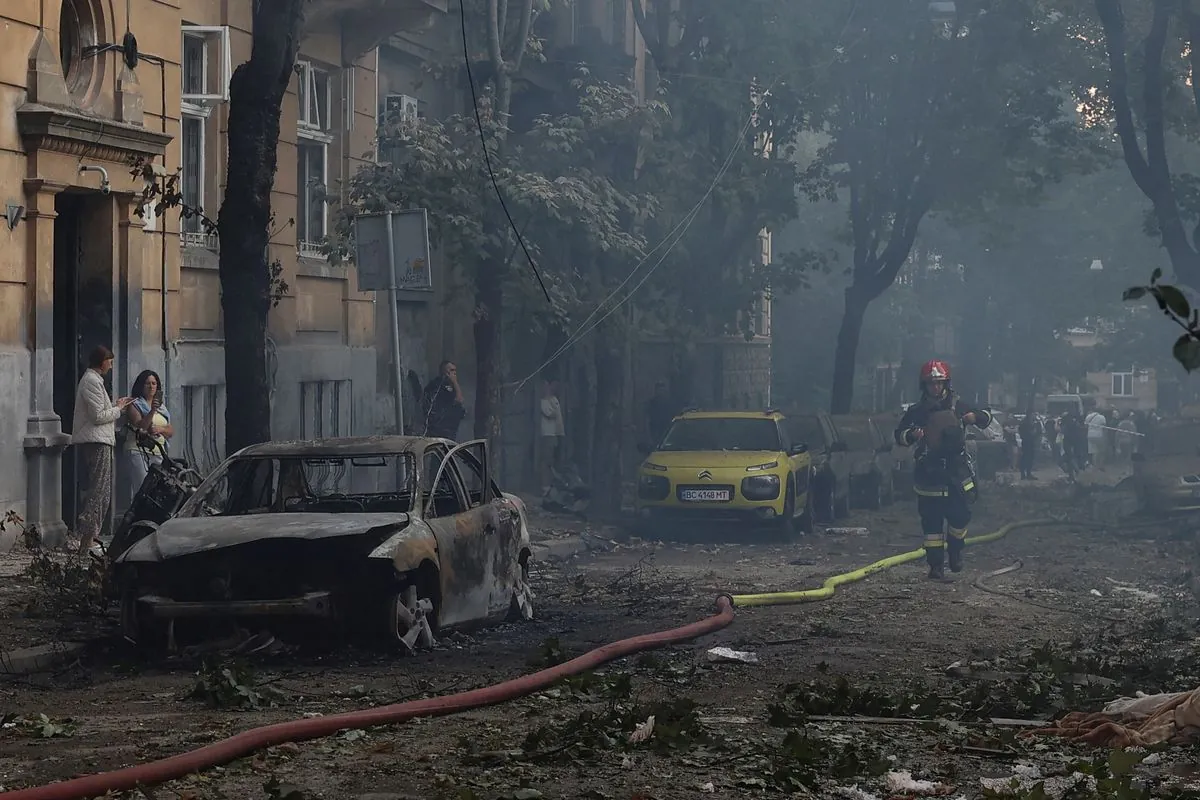In a devastating attack on September 4, 2024, Russian forces launched a drone and missile strike on Lviv, a historic city in western Ukraine, resulting in the deaths of seven individuals, including four members of a single family. The assault, which occurred in the early hours of Wednesday, caused extensive damage to over 150 structures, including several historic sites within the UNESCO World Heritage buffer zone.
Andriy Sadovyi, the mayor of Lviv, reported that Yaroslav Bazylevych lost his wife and three daughters, aged 7, 18, and 21, when their home was struck. This tragic event underscores the human cost of the ongoing conflict, which began approximately 30 months ago with Russia's full-scale invasion of Ukraine.
The attack on Lviv, a city renowned for its diverse architectural styles and rich cultural heritage, has not only claimed lives but also damaged significant historical landmarks. Founded in 1256, Lviv's historic center has been a UNESCO World Heritage site since 1998, boasting over 100 churches and numerous architectural marvels spanning Gothic, Baroque, and Art Nouveau styles.
Ukrainian officials reported that Russian attacks targeted energy facilities and critical infrastructure across nine regions in the past 24 hours. The air force stated that out of 13 missiles and 29 drones launched by Russia, Ukrainian air defenses successfully intercepted seven missiles and 22 drones.
"Allies could help stop the terror by providing more air defenses, and again urged them to allow the use of long-range Western weapons deeper into Russian territory."
In response, Moscow warned of an "extremely painful" retaliation if Ukraine were to conduct long-range strikes on Russian territory.
The Russian Defense Ministry claimed that the strikes in Lviv targeted defense enterprises responsible for manufacturing and repairing electronic components for Ukrainian military aircraft and missile systems. However, Ukraine and international observers have consistently reported civilian casualties and damage to non-military targets.
The recent escalation in attacks has also affected neighboring countries. Poland, a NATO member bordering western Ukraine, has scrambled aircraft three times in the past eight days to maintain the safety of its airspace. Lviv's proximity to the Polish border, approximately 70 km away, highlights the potential for regional instability.
As Lviv grapples with the aftermath of this attack, it's worth noting that the city has long been a cultural and historical center. Home to the oldest park in Ukraine, established in 1799, and the site of the first Ukrainian-language newspaper published in 1848, Lviv continues to play a significant role in Ukraine's cultural landscape. The city's resilience is evident in its ongoing hosting of events like the annual Leopolis Jazz Fest, one of Europe's largest jazz festivals, even in the face of conflict.
The international community continues to monitor the situation closely, with calls for increased support for Ukraine's air defense capabilities growing louder in the wake of these attacks on civilian areas and cultural heritage sites.
